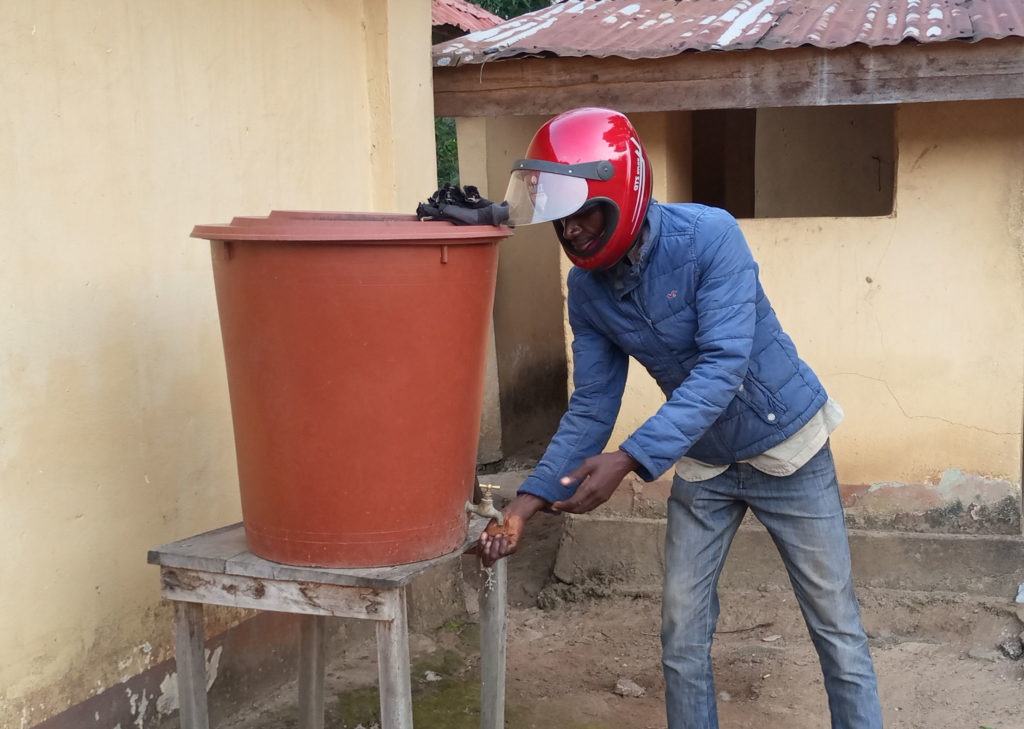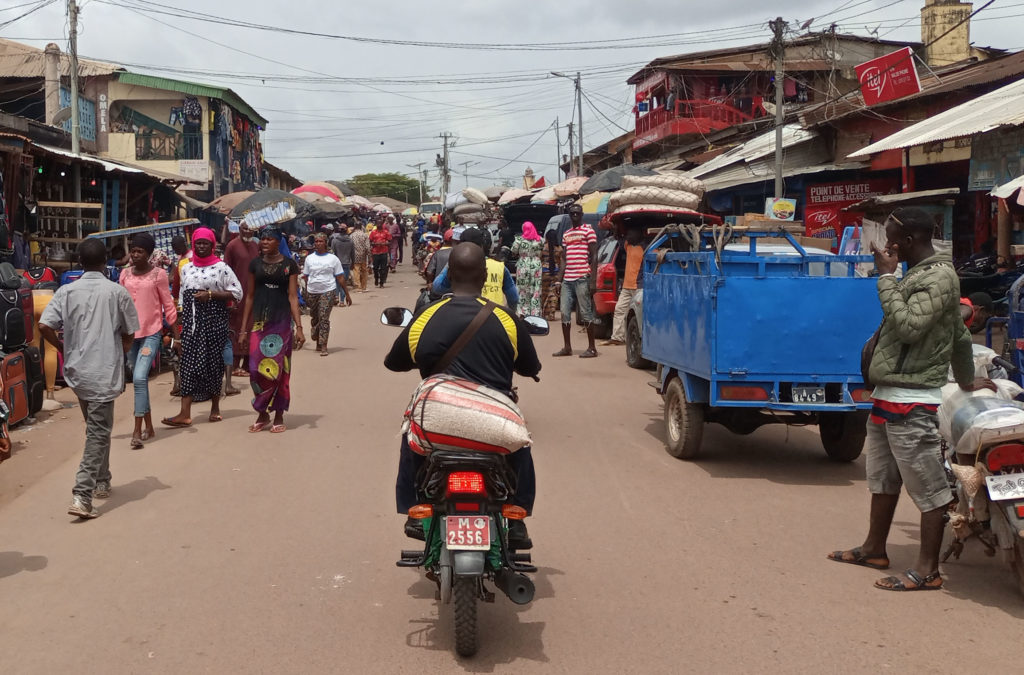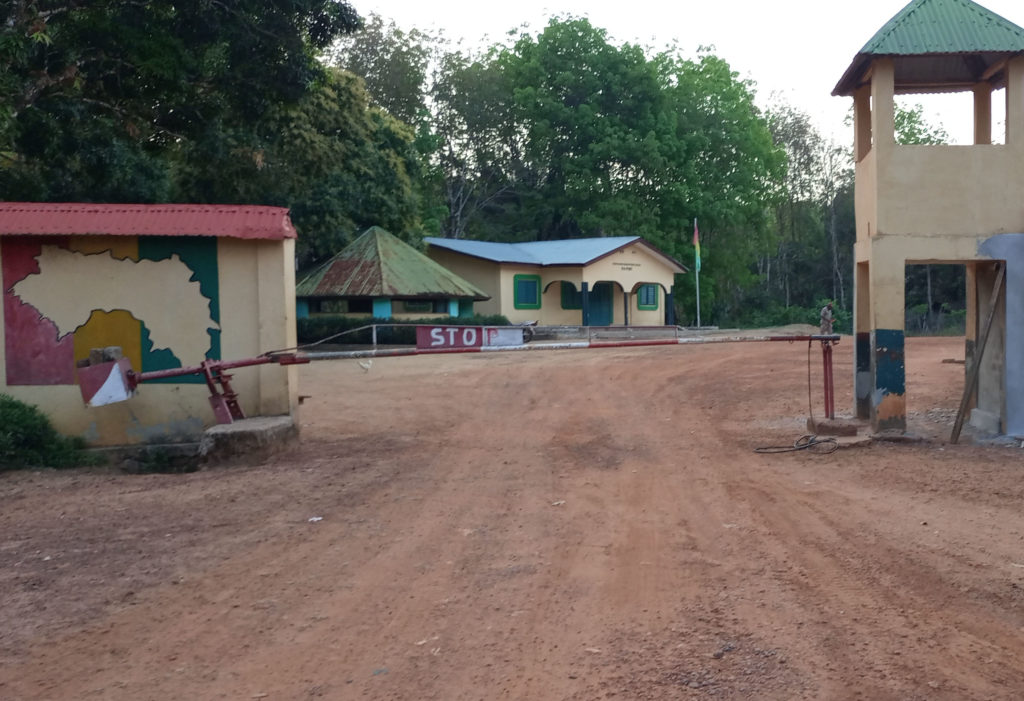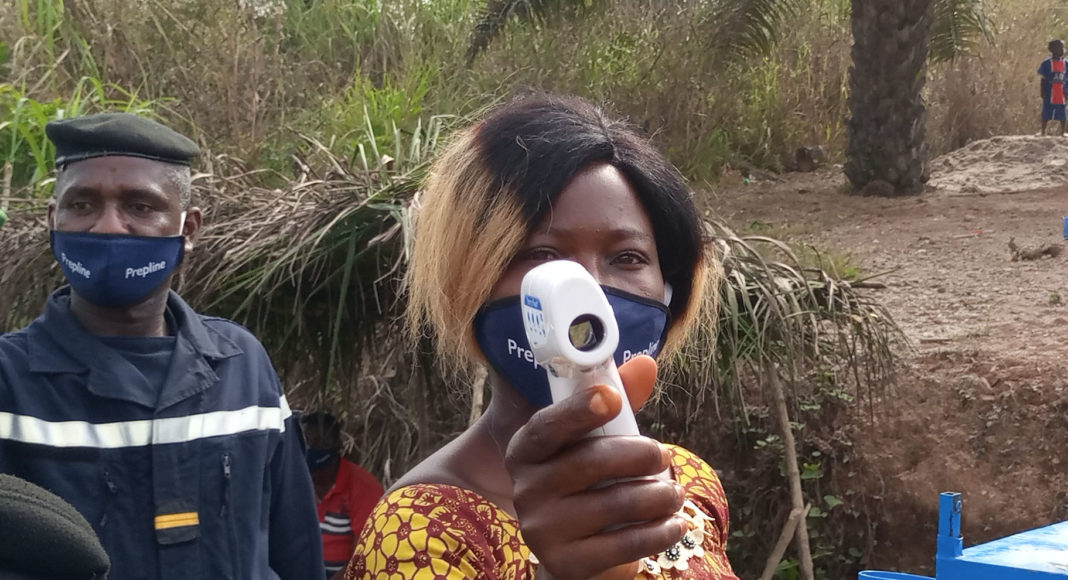By Varney Kamara
GOUÉCKÉ, Guinea —The small town of Gouécké in southeastern Guinea grabbed international attention over the last two weeks when the Guinean government announced that it was the epicenter of a new outbreak of the Ebola virus.
At least five people from Gouécké have died from the new Ebola virus outbreak and nine others have been infected, health authorities in Guinea’s Nzérékoré region told Sahelien.com.
Special units of gendarmerie and health workers are now deployed at checkpoints leading to the two main entrances of the Kpelleh-speaking town of 36,555. Travelers moving in and out of the city must wash their hands in buckets and have their temperatures taken at the entrances, which are closely monitored.
On February 3, 2021, the Guinean government announced the death of 49-year-old Christine Lowo from Ebola virus, marking the first time the disease resurfaced in the region since the devastating 2014-2016 epidemic. Authorities would not say how Lowo was first infected.
Lowo was a nursing director at the Gouécké medical center who had self-diagnosed her Ebola symptoms and asked to be tested for the virus, according to local authorities. After her death, two of her younger brothers also died from the disease, stoking renewed fear about a resurgent virus that severely damaged the region’s political, social and economic sectors during the 2014-2016 global health emergency.
The mayor of Gouécké, Ibrahima Koné, reassured the public that the authorities have traced all of Lowo’s contacts and placed them in isolation. “After she presented symptoms of vomiting, black stool and weakness, we transferred her to Nzérékoré and there, doctors pronounced that she died of Ebola,” he explained to Sahelien.com. “Two of her little brothers also died from Ebola. Since then, we have traced 40 people who were connected or interacted with the dead and turned them over to the health administrators in Nzérékoré, where they are being kept at a safe location. This is how we managed to contain the virus,” he said.
Gouécké sits 40 kilometers away from the regional capital, Nzérékoré, and is 121 kilometers northeast of the Liberian border. In the middle of Guinea’s Forest Region, the town is surrounded by rolling green hills and thick forest.

The town’s administrators have put in place immediate health regulations like hand-washing and temperature checks throughout the town, as well as social distancing and a ban on large assemblies. The measures are aimed at containing the virus and limiting the risk of the rapid spread of a hemorrhagic fever whose common signs include vomiting, bleeding, severe fever, cold, running stomach, and breakdown of the nervous system.
So far, Koné said, all of the fatalities from the virus come from Lowo’s family, and that no other deaths or infections have been reported. Koné emphasized, however, that there are limited supplies of food, medicine, and medical-grade cleaning supplies for the sick and those in quarantine.
“I can tell you for sure that the Guinean government is doing its best to help contain the situation. But I am also appealing to the international community for food and other medical supplies for the people we have quarantined so far,” he said.
Mayor Koné’s plea for help reflects a broader picture of the hurdles regional governments must overcome in fighting the dangerous Ebola epidemic, experts say. Weak health infrastructure, limited capacity, inadequate infections disease specialists, lack of training, and limited financial resources are several of the shared difficulties governments in the region experienced during the 2014 Ebola outbreak. Gouécké is roughly 230 kilometers from Meliandou, Guinea, where the 2014 outbreak originated.
A World Bank report released in October 2014 recorded more than 14,000 deaths from Ebola from 20,000 infections during 2014. The health crisis led to an economic impasse, with USD $2.2 billion lost in Liberia, Sierra Leone and Guinea, according to the World Bank.

By mid-2016, as governments in the region finally surmounted the world’s largest Ebola crisis, thousands of survivors also faced a societal problem of facing down stigmatization across communities and households to reunite with their families.
Guinea’s second Ebola outbreak comes at a time the region is still struggling to deal with the impact of the Covid-19 pandemic, which has also weakened trade, and soured regional economies. “We are tired. First, they told us we had Ebola, then they said we have coronavirus. Now Ebola again,” a woman from Gouécké, who asked not to be identified, said.
In response to Guinea’s Ebola outbreak, authorities in neighboring Liberia ordered the reactivation of the emergency health teams in counties bordering Guinea, including Lofa, Bong, Nimba, Cape Mount, and Gbapolu counties, while at the same time asking its population to not panic.
In neighboring Sierra Leone, President Julius Maada Bio has also ordered the reactivation of the country’s emergency response health system and surveillance team to trace contacts and monitor the situation with its border with Guinea. Health authorities in the region are also holding round-the-clock meetings and putting emergency measures in place to stop the virus from spreading from spreading any further.

So far, Guinea and the West African region seems to have a firm grip on the new Ebola virus disease outbreak, raising expectations that the virus will not reach the uncontrollable level it did at the beginning of the 2014 epidemic.
However, despite early positive signs, there are concerns. Much of the Guinean population in Nzérékoré region is still in denial of the resurgence of Ebola. In Gouécké, Nzérékoré, and other towns and villages, most people in the streets do not wear nose masks or carry disinfectants.
“Go and tell your people in Liberia that we don’t have Ebola in our country. This is a white man sickness. These people are telling lies,” a woman in Nzérékoré’s Kpamady community, smiled and remarked as she walked passed the Sahelien.com correspondent.
Her comments represent a common perception of those who still doubt the existence of the Ebola virus. Experts say this denial could be a serious trapdoor for the government unless it embarks on a sustained information campaign.
“We can only pray and hope that God will help us so that the virus doesn’t spread any further. The government and its international partners are doing their best, but people are very stubborn,” Christopher Millenouno, spokesperson of the Nzérékoré health authorities told Sahelien.com. “If you tell them do not go this place and do not do XYZ, they don’t listen to you. They instead do the opposite. This is the problem,” he lamented.
Millenouno said that the government of Guinea has already started to vaccinate its population against the Ebola virus. “This is why the Guinean goverment is not taking any chances. The government and its international partners are tightening our grip on the situation so that it doesn’t go out of hand.”


